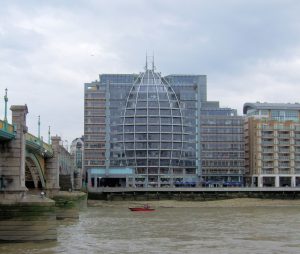
After more than 40 years of operation, DTVE is closing its doors and our website will no longer be updated daily. Thank you for all of your support.
UK regulator raises concerns about big tech’s influence over news

Ofcom’s HQ
US tech firms including Facebook increasingly shape the news stories that people in the UK see and read, according to a new report from UK media regulator Ofcom. As a result, it says there are “risks around transparency and choice in news”.
Ofcom said it has identified concerns around the impact of online news ‘gatekeepers’ – particularly social media, such as Facebook, but also search engines and news apps such as Apple News and Google News.
Ali-Abbas Ali, competition director in Ofcom’s Broadcast and Online Content Group, said: “Our news landscape has seen huge transformation, with online firms offering easy access to an ever-wider pool of stories, voices and opinions. But while there’s no lack of choice, new concerns are emerging about the impact of the decisions that tech firms make on our behalf to determine the news stories we do – and don’t – see in our feeds. We’re undertaking further work to interrogate this issue and expect to make formal recommendations to government to ensure the UK’s diverse and vibrant news landscape is secured for the future.”
Ofcom raised concerns about the “polarising effect” of social media. “People who mainly use social media to access news are more likely to be less tolerant of opposing political views, less able to correctly identify factual information and less trusting of democratic institutions, compared to those who use TV and newspapers. Other international studies support these findings; one found that users became less politically polarised if they deactivated their Facebook account for just four weeks.”
Ofcom added that “people are unclear about the influence of gatekeepers on the news they see. Nine in ten people think that choice in news, is important. But people aren’t always clear about the choices that social media, search and news apps are making on their behalf, and why certain stories are shown to them or not.”
Facebook is the third most popular news source overall in the UK, after the BBC and ITV, while among younger teenagers, Instagram, TikTok and YouTube top the list.

